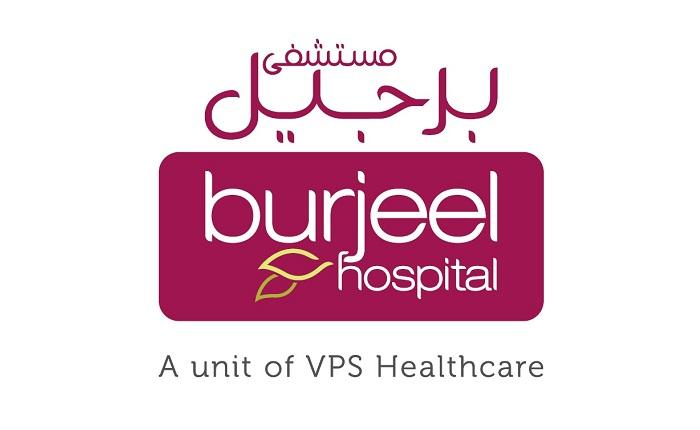
Keratoconus Disease
Dr. Edmondo Borasio, Head of Corneal and Refractive Surgery Department at Burjeel Hospital, Abu Dhabi highlights the importance of getting checked for Keratoconus Disease and talks about the different treatments offered for it.
What is keratoconus?
Keratoconus is a disease in which the cornea (the eye’s outermost layer) gets progressively weaker and starts bulging forward, causing the vision to become blurred and distorted and often eventually requiring corneal transplantation if not treated on time.
What causes keratoconus and what are its main symptoms?
The exact cause of keratoconus remains unknown till date. However, genetics definitely play a role as keratoconus appears to run in families. The condition happens more often in people with certain medical problems, including certain allergic conditions. Often, the condition is related to chronic eye rubbing. Most often, though, there is no eye injury or disease that can explain why the eye starts to change. It’s advisable to have your children’s eyes checked starting at the age of 10 if someone from your family has it.
As for the symptoms, it usually starts with blurred vision and frequent changes in the vision that cannot be corrected with glasses. Symptoms of keratoconus generally begin in late teenage years or early twenties, but can start at any time. Other symptoms may include:
• Increased light sensitivity
• Difficultly driving at night
• A halo around lights (especially at night)
• Seeing shadows in the field of vision
• Headaches and general eye pain
• Eye irritation, excessive eye rubbing
How frequent is keratoconus?
A: The prevalence varies greatly between different parts of the world (from 0.3:100,000 in Russia to 2,300:100,000 in Central India) but it is much more frequent in the Middle East (20:100,000) compared to Europe and the United States populations (1.3–3:100,000). The condition has a strong genetic predisposition and therefore occurs more frequent in consanguineous families.
What can be done to stop progression and improve the vision?
Fortunately nowadays there are some minimally-invasive options to stop the disease in its different stages, avoiding the need of corneal transplantation in many cases.
Early stages:
Collagen Cross Linking is the first line treatment for early cases and it is ideal for those patients in whom the vision is still fairly good. The procedure consists in applying Riboflavin (vitamin B2) and then a blue light on the cornea for several minutes. This triggers a chemical reaction which makes the cornea stronger and stiffer and prevents it from bulging forward further, stopping or at least slowing down progression.
Intermediate stages:
If those cases in which the disease is more advanced and the vision is already compromised, the first step is to prevent further progression by either performing Collagen Cross Linking or alternatively by Intracorneal Ring surgery; some rigid rings that can be implanted after creating special corneal tunnels with the femtosecond laser.
The second step is to perform certain procedures to improve the vision. In order to correct the sight, if glasses or contact lenses are not an option, a special invisible contact lens can be implanted inside the eye. This is called phakic lens surgery (ICL or Toric ICL) which successfully restores the sight for most of the patients.
Advanced stages:
In advanced cases where the vision is poor, a partial thickness Deep Anterior Lamellar corneal transplant (DALK) can be done as an alternative to the traditional and more invasive full thickness Penetrating corneal transplant (PK) where all the layers of the cornea are replaced. Following corneal transplantation, the patient may either wear glasses, contact lenses or undergo further surgery to correct the sight. This may include Femtosecond Laser Astigmatic Keratotomy (AK) to reduce high levels of astigmatism or Toric ICL implantation to correct the residual refractive error.
Can I take any precaution to avoid developing the disease?
Unfortunately no. However, detecting the disease early means that it can be stopped before the sight is compromised significantly.
Since keratoconus often starts very slowly during childhood and gives very few signs apart from the vision getting progressively worse, early detection could be difficult. The only way to detect it is through high resolution corneal topography scans. It is therefore advisable to visit a Corneal Specialist to exclude this condition if you fall under any of these categories:
• Your parents, brothers, sisters or cousins have keratoconus
• Your astigmatism is gradually increasing and your sight is getting worse
• You cannot achieve clear vision despite wearing updated glasses prescription
• You can only see clearly if you wear a hard contact lens
About Burjeel Hospital:
Burjeel Hospital is Abu Dhabi’s premier private healthcare facility providing world-class, specialized and superior healthcare complemented by a warm and personalized human touch to the growing population of the emirate of Abu Dhabi.
A unit of the VPS Healthcare, Burjeel Hospital opened for patients in April 2012 as a Tertiary hospital under the auspices of the Health Authority for Abu Dhabi. At the core of the organization is a team of exceptionally skilled and highly experienced health professionals, collaborating as multidisciplinary teams with Guests and their families as the main focus, to provide the best healthcare experience.
Burjeel Hospital received the prestigious Joint Commission International (JCI) accreditation in June 2013 – 15 months after starting operations. Currently, the hospital is affiliated with some of the world’s best healthcare institutions for its centers of excellence and is now becoming a renowned center of referral for Cardiovascular, Orthopedics, Ophthalmology, Pediatrics, Obstetrics and Gynecology, Reproductive Medicine and many more specialties handling complex laparoscopic and minimally invasive surgeries.
The hospital has full-fledged pharmacy, laboratory, and radiology units to serve Guests at any time of the day. Burjeel also houses a restaurant and a coffee shop, serving the finest and healthiest cuisines from across the world. Combining all-round specialization and expertise with most advanced technology, Burjeel offers the best in diagnostic, curative, as well as preventive aspects of healthcare.
What is keratoconus?
Keratoconus is a disease in which the cornea (the eye’s outermost layer) gets progressively weaker and starts bulging forward, causing the vision to become blurred and distorted and often eventually requiring corneal transplantation if not treated on time.
What causes keratoconus and what are its main symptoms?
The exact cause of keratoconus remains unknown till date. However, genetics definitely play a role as keratoconus appears to run in families. The condition happens more often in people with certain medical problems, including certain allergic conditions. Often, the condition is related to chronic eye rubbing. Most often, though, there is no eye injury or disease that can explain why the eye starts to change. It’s advisable to have your children’s eyes checked starting at the age of 10 if someone from your family has it.
As for the symptoms, it usually starts with blurred vision and frequent changes in the vision that cannot be corrected with glasses. Symptoms of keratoconus generally begin in late teenage years or early twenties, but can start at any time. Other symptoms may include:
• Increased light sensitivity
• Difficultly driving at night
• A halo around lights (especially at night)
• Seeing shadows in the field of vision
• Headaches and general eye pain
• Eye irritation, excessive eye rubbing
How frequent is keratoconus?
A: The prevalence varies greatly between different parts of the world (from 0.3:100,000 in Russia to 2,300:100,000 in Central India) but it is much more frequent in the Middle East (20:100,000) compared to Europe and the United States populations (1.3–3:100,000). The condition has a strong genetic predisposition and therefore occurs more frequent in consanguineous families.
What can be done to stop progression and improve the vision?
Fortunately nowadays there are some minimally-invasive options to stop the disease in its different stages, avoiding the need of corneal transplantation in many cases.
Early stages:
Collagen Cross Linking is the first line treatment for early cases and it is ideal for those patients in whom the vision is still fairly good. The procedure consists in applying Riboflavin (vitamin B2) and then a blue light on the cornea for several minutes. This triggers a chemical reaction which makes the cornea stronger and stiffer and prevents it from bulging forward further, stopping or at least slowing down progression.
Intermediate stages:
If those cases in which the disease is more advanced and the vision is already compromised, the first step is to prevent further progression by either performing Collagen Cross Linking or alternatively by Intracorneal Ring surgery; some rigid rings that can be implanted after creating special corneal tunnels with the femtosecond laser.
The second step is to perform certain procedures to improve the vision. In order to correct the sight, if glasses or contact lenses are not an option, a special invisible contact lens can be implanted inside the eye. This is called phakic lens surgery (ICL or Toric ICL) which successfully restores the sight for most of the patients.
Advanced stages:
In advanced cases where the vision is poor, a partial thickness Deep Anterior Lamellar corneal transplant (DALK) can be done as an alternative to the traditional and more invasive full thickness Penetrating corneal transplant (PK) where all the layers of the cornea are replaced. Following corneal transplantation, the patient may either wear glasses, contact lenses or undergo further surgery to correct the sight. This may include Femtosecond Laser Astigmatic Keratotomy (AK) to reduce high levels of astigmatism or Toric ICL implantation to correct the residual refractive error.
Can I take any precaution to avoid developing the disease?
Unfortunately no. However, detecting the disease early means that it can be stopped before the sight is compromised significantly.
Since keratoconus often starts very slowly during childhood and gives very few signs apart from the vision getting progressively worse, early detection could be difficult. The only way to detect it is through high resolution corneal topography scans. It is therefore advisable to visit a Corneal Specialist to exclude this condition if you fall under any of these categories:
• Your parents, brothers, sisters or cousins have keratoconus
• Your astigmatism is gradually increasing and your sight is getting worse
• You cannot achieve clear vision despite wearing updated glasses prescription
• You can only see clearly if you wear a hard contact lens
About Burjeel Hospital:
Burjeel Hospital is Abu Dhabi’s premier private healthcare facility providing world-class, specialized and superior healthcare complemented by a warm and personalized human touch to the growing population of the emirate of Abu Dhabi.
A unit of the VPS Healthcare, Burjeel Hospital opened for patients in April 2012 as a Tertiary hospital under the auspices of the Health Authority for Abu Dhabi. At the core of the organization is a team of exceptionally skilled and highly experienced health professionals, collaborating as multidisciplinary teams with Guests and their families as the main focus, to provide the best healthcare experience.
Burjeel Hospital received the prestigious Joint Commission International (JCI) accreditation in June 2013 – 15 months after starting operations. Currently, the hospital is affiliated with some of the world’s best healthcare institutions for its centers of excellence and is now becoming a renowned center of referral for Cardiovascular, Orthopedics, Ophthalmology, Pediatrics, Obstetrics and Gynecology, Reproductive Medicine and many more specialties handling complex laparoscopic and minimally invasive surgeries.
The hospital has full-fledged pharmacy, laboratory, and radiology units to serve Guests at any time of the day. Burjeel also houses a restaurant and a coffee shop, serving the finest and healthiest cuisines from across the world. Combining all-round specialization and expertise with most advanced technology, Burjeel offers the best in diagnostic, curative, as well as preventive aspects of healthcare.
Share:
ADD TO EYE OF Dubai
MOST POPULAR
The Events Investment Fund Announces Strategic Joint Venture with the World’s Largest Venue Management Operator
Thursday 11 December, 2025 10:51NHC CEO warns of rising land prices
Tuesday 9 December, 2025 1:08Diriyah, Apple sign lease deal to open retail store in Diriyah Square
Tuesday 9 December, 2025 12:57Saudi Arabia, Qatar ink deal to build high-speed electric rail link
Tuesday 9 December, 2025 1:03 ×

























